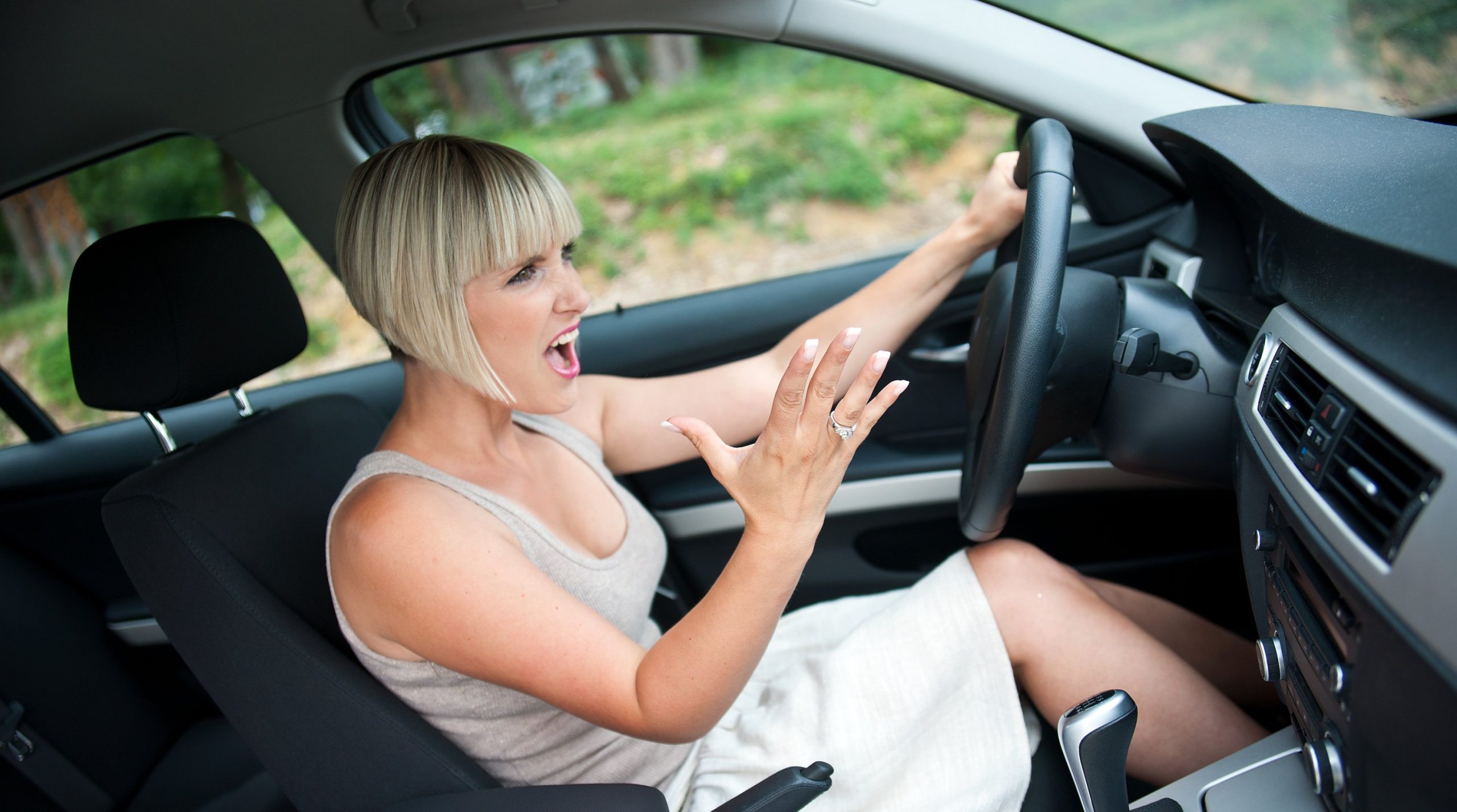
15 ways to avoid road rage
Road rage is an extension of aggressive driving and everyone is subject to it or has seen it on the road at least once. The uncontrolled anger or rage of a driver at the actions of another driver, resulting in aggressive or violent behavior, constitutes road rage. This differs from aggressive driving in that it escalates into acts such as deliberately running into another vehicle, pushing someone off the road, stopping to engage in a physical confrontation, and even using a weapon.
According to the AAA Highway Safety Foundation, the majority of violent drivers who have become road rioters are young male drivers. However, everyone is susceptible to road rage, especially if the person is stressed or frustrated in other areas of their lives. Traffic congestion can contribute to stressful, anxious feelings that can potentially escalate into road rage when it appears that the other driver has intentionally or unintentionally acted aggressively. If you're wondering if you're prone to road rage, ask yourself the following questions:
Do you often drive faster than the legal limit or try to run red lights because you're always in a hurry?
Are you flashing your high beams or driving alongside another driver if you feel he is moving too slowly?
Do you often lie down on the horn?
Do you make rude gestures or communicate angrily with other drivers?
If you answered yes to these questions and do it often, you may have a tendency to road rage. Road rage is a criminal charge; Aggressive driving is less of a traffic violation, but both are dangerous. Read on if you know you're prone to road rage or want to know what to do if you encounter a road aggressor.
10 ways to prevent road rage
1. Listen to relaxing music: Listening to relaxing music can really help, especially if you're feeling stressed, frustrated, or angry. Concentrate on your breath and avoid aggressive or provocative thoughts. Focus on thinking about neutral topics that are not related to external driving conditions.
2. Be sure to get enough sleep. Driving without adequate rest can contribute to irritability and rapid anger. In addition to being more susceptible to road rage, drowsiness can be dangerous while driving. No one wants tired eyes to close on the road.
3. Leave early to go places. People get frustrated more easily when they feel like they don't have much time. The stress of being late can feel even more aggravating when you stop at a red light or in traffic. If you're stuck in traffic, it helps to recognize that you're late and try to relax.
4. Be aware of the road sharing mentality. Remember, especially in traffic, that everyone around you is also stuck waiting. You will want to maintain behavior that provides a safe environment for all drivers. Remember that no one is perfect, but you must all follow the laws to travel safely on the road.
5. Maintain distance between yourself and other drivers. Aggressive driving often manifests itself in the fact that you are driving behind and too close to other travelers. Leave plenty of room. Anticipate the mistakes of other drivers - if you get too close, someone will hit the brakes, this can lead to an accident.
6. Watch your driving and triggers. Start paying attention to what pisses you off on the road, whether it's specific driving situations or issues outside of the car that affect your driving. Notice how long you stay angry under these circumstances. Recognizing them can help you avoid these conditions and treat them more positively when they occur.
7. Refrain from eye contact and obscene gestures. By allowing yourself to angrily prank the other driver, you can also provoke him into aggressive behavior. In addition, distraction from the road creates another safety hazard.
8. Avoid verbal expression of disappointment. Shouting out frustrations may not be as cathartic as you might expect. Spilling can actually heighten feelings of frustration and danger.
9. Place photos or soothing images on the toolbar. By not placing them in a place that interferes with your view in any way, looking at photos of loved ones or places you love can calm you down if you get angry. You want to drive safely to get back to those people, pets, or places.
10. Consider cost. If money is a good deterrent, accident damage and criminal charges are expensive. Even if no one is hurt in a traffic accident, tickets, legal fees, and insurance rates can quickly add up in price.
5 Ways to Avoid Road Robbers
If you encounter a road aggressor, you must stay out of his path and not engage in combat. You may not notice someone with aggressive driving behavior, so here are 5 ways to avoid someone else's road rage and any dangerous consequences.
1. Drive predictably and carefully. This means signaling, checking for free space when you merge, not looking at your cell phone, and other safe driving rules. Although things happen by chance, it's best to try not to contribute to any problems.
2. Horn only if you have one too. Beeping in response to an aggressive and angry act can only increase their road rage. Horn only in the event of a security breach, such as when someone changes lanes without seeing your car.
3. Avoid angry motorists when you see them. Don't speed up to overtake someone if you see them acting aggressively. Change lanes if you are being overtaken from behind, slow down to let someone else pass, and stay behind an angry driver. It's harder for them to hurt you if you're behind them. If necessary, turn off the road or take the next exit so as not to interfere with them.
4. Ignore obscene gestures. Don't incite road rage - don't make eye contact or react in any way that will interest an angry driver, such as responding to his gestures or yelling out loud from inside the car.
5. Don't be afraid to report an accident to the authorities. Reporting something can really save a life. Law enforcement may contact an angry driver before an accident occurs. If you witness an accident with a raging vehicle on the road, call the police, but be careful and use your judgment when approaching the driver - aggressive drivers can be unpredictable. Also, don't go home if you're being followed by an upset driver. Call the police and wait for their help.
